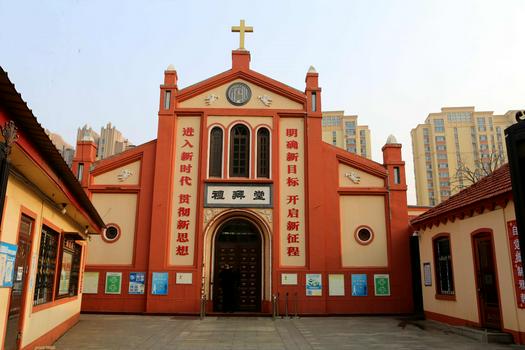In Yuanbao District, Dandong City, Liaoning Province, lies the Yuanbao Mountain Christian Church, which was initially built in 1915. It is a two-story building that has a mixed structure of Nordic Gothic brick and wood.
This church was said to be designed and built by Danish Lutheran missionaries in Andong (now Dandong) at that time. In 1892, the Danish "Christian Lutheran church" sent evangelists to Luda (now Dalian), Gushan in the Northeast, and then Fengcheng, Xiuyan, and other places to preach the gospel. Afterward, the Danish pastor, Johannes Vyff, set foot in Andong (now Dandong, the same below). He was not only a pastor, but also an educator, gardener, and doctor. He built a church in Dandong, as well as schools and other facilities. In order to adapt to the missionary work in China, Vyff first studied at Jinan Chinese Language School in Shandong Province. After graduation, he came to Dandong City from Luda (Dalian). In 1914, a church that could accommodate hundreds of people was built after the land was purchased on Yuanbao Mountain.
The church owned a construction area of 397.4 square meters, with two auxiliary rooms in the courtyard, one of which was a traditional "pastor's mansion" brick building. It was used as the office and accommodation for the pastors in those days. According to records, the church at that time had a bell tower on the top, and the interior was comprised of a hall with Bible banners hanging around the walls. There was an altar on the south side of the hall with a granite stone basin for baptism in front of the altar. Indoor wooden floors were applied and it could hold about 600 people.
Since then, the interior of the church has changed with not only the traces from more than a hundred years ago but also the characteristics of modern Christianity. In the backyard of the current church, there is a cultural corridor for believers to rest, whose décor style matches the Sinicization of Christianity and the "four entries" campaign (the national flag of China, the Constitution, laws and regulations, core socialist values, and fine traditional Chinese culture shall enter religious venues).
(The article is originally published by the Gospel Times.)
- Translated by Shuya Wang












